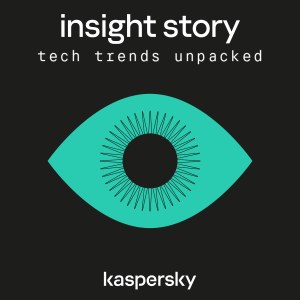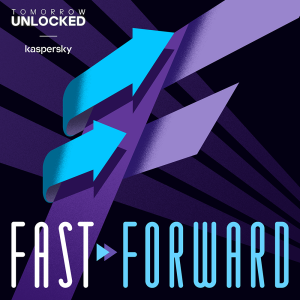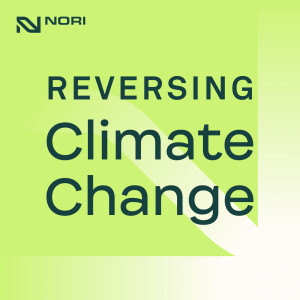
Do you have strong bonds with a faith community or civic organization? How about a book club or sports league? Do you live near your parents? How well do you know your neighbors? In Why Liberalism Failed, Patrick Deneen makes the communitarian argument that liberalism’s failure lies in its success. In the pursuit of individual autonomy, we have alienated ourselves from each other and the environment.
Jeffrey Howard is the Founder and Editor-in-Chief at Erraticus, an online publication focused on human flourishing. On this episode, Jeffrey joins Alexsandra and Ross to discuss the ideas in Deneen’s book and compare how communitarians and liberals see the world.
Jeffrey offers his take on the downside of liberalism’s success, describing our growing isolation and dependence on government interventions or markets—as opposed to each other. Listen in to understand the limits of communitarianism in terms of scale and learn how a communitarian might approach climate change.
N.B. Ross & Jeffrey both regret not discussing the work of John Rawls with regard to contractarianism and as an avenue to criticism of communitarianism.
Key Takeaways
[1:43] How communitarians see the world
Meaning comes from communities (particulars vs. universal) Comfortable with locally driven interventions
[7:54] The three different types of communities
Place Memory Psychology
[10:02] The fundamentals of liberalism
Non-relational beings not beholden to communities See nature as something to conquer + control
[12:47] How liberalism impacts communities
Uncomfortable making demands on one another Leads to alienation, thin community bonds
[19:22] Patrick Deneen’s argument re: the loose relationships of liberalism
Turn to government interventions, market means Takes intention to develop friendships in new place
[28:35] The downside of liberalism’s success
Hollowed out civic and social institutions Associations temper extremes in human nature
[35:01] The consequences of liberalism for individuals
Growing alienation, loneliness (discard if unproductive) Lack of emotional intelligence + general distrust
[37:39] A communitarian take on climate change
Skeptical of commodification of nature Lose something when don’t know where food comes from
[43:20] Jeffrey’s solutions for brain drain in small communities
Advocate for completion of hero’s journey Remote work
[51:15] Jeffrey’s argument against the romanticizing of travel
Carbon footprint Can’t escape problems to ‘find yourself’
[56:21] A communitarian approach to solving climate change
Need thousands of local Green New Deals Unify to build something together vs. top-down approach
[59:31] The best critiques of communitarianism
Too limiting to individual freedoms Give to person most in need (vs. person in community) Local solutions won’t scale quickly enough
Connect with Alexsandra & Ross
Nori
Nori on Facebook
Nori on Twitter
Nori on Medium
Nori on YouTube
Nori on GitHub
Nori Newsletter
Email hello@nori.com
Nori White Paper
Subscribe on iTunes
Carbon Removal Newsroom
Resources
Erraticus
Jeffrey on Twitter
Why Liberalism Failed by Patrick J. Deneen
Books by Wendell Berry
Front Porch Republic
John Stuart Mill’s Harm Principle
David Hume’s ‘Of the Original Contract’
Democracy in America by Alexis de Tocqueville
The Quest for Community: A Study in the Ethics of Order and Freedom by Robert Nisbet
Francis Fukuyama
Bowling Alone: The Collapse and Revival of American Community by Robert D. Putnam
Wendell Berry’s Port William Novels & Stories
How the Bible Actually Works: In Which I Explain How an Ancient, Ambiguous, and Diverse Book Leads Us to Wisdom Rather Than Answers—and Why That’s Great News by Peter Enns
Wendell Berry Farming Program at Sterling College
Enlightenment Now: The Case for Reason, Science, Humanism, and Progress by Steven Pinker
Seattle Salsa Congress
Joseph Campbell
Eat, Pray, Love: One Woman’s Search for Everything Across Italy, India and Indonesia by Elizabeth Gilbert
Charlie Deist’s Green New Deal Article
Blacksheep on RCC EP076
Peter Singer on Effective Altruism
More Episodes
S2E54: Survivorman in an age of climate trouble—w/ Les Stroud, survival expert
 2021-03-09
2021-03-09
A jaunt to the climate crises of deep time—w/ Peter Brannen, author of The Ends of the World
 2021-03-05
2021-03-05
S2E53: Paul Kingsnorth on the shared roots of climate crisis, transhumanism, & immortality
 2021-03-02
2021-03-02
What makes an online climate community work?—w/ Evan Hynes of Climatebase
 2021-02-26
2021-02-26
S2E52: Using captured carbon to make art—w/ Annalee Levin of Captured Carbon Studio
 2021-02-23
2021-02-23
S2E51: Kim Stanley Robinson chats The Ministry for the Future, blockchain, & macroeconomics
 2021-02-16
2021-02-16
S2E50: Under a White Sky: Elizabeth Kolbert's new book on humanity's ecological & climate interventions
 2021-02-09
2021-02-09
Grist's intersectional climate fiction contest—w/ Tory Stephens of Fix, the Grist solutions lab
 2021-02-05
2021-02-05
S2E49: At the feet of a modern hermit—w/ Markus Torgeby, author of Under the Open Skies
 2021-02-02
2021-02-02
Climate fintech, neobanks, & banking for good—w/ Ravi Mikkelsen, cofounder of ATMOS
 2021-02-01
2021-02-01
S2E48: Damn the Absolute! On pragmatism and climate change—w/ Jeffrey Howard, Editor-in-Chief of Erraticus
 2021-01-26
2021-01-26
S2E47: Being a "witness" to climate change—w/ Dr. Evan Kuehn of North Park University
 2021-01-19
2021-01-19
S2E46: Ecosystem restoration on a planetary scale—w/ John D. Liu, scientist & filmmaker
 2021-01-12
2021-01-12
S2E45: Synthetic biology & the holy grail of ag—w/ Mike Miille, CEO of Joyn Bio
 2021-01-05
2021-01-05
S2E44: Can permaculture scale?—w/ Mark Shepard, author of Restoration Agriculture
 2020-12-22
2020-12-22
S2E43: Salmon, the Earth, & their common fate—w/ Mark Kurlansky, author
 2020-12-15
2020-12-15
S2E42: The national security implications of climate change—w/ Dr. Rod Schoonover
 2020-12-08
2020-12-08
How do you tell a good story about the climate?—w/ Jess Miles, writer
 2020-12-04
2020-12-04
S2E41: Climeworks & European carbon removal—w/ Christoph Beuttler, CDR Manager at Climeworks
 2020-12-01
2020-12-01
S2E40: Much talk of CO2, but what about methane?!—w/ Olya Irzak of Frost Methane
 2020-11-24
2020-11-24
Create your
podcast in
minutes
- Full-featured podcast site
- Unlimited storage and bandwidth
- Comprehensive podcast stats
- Distribute to Apple Podcasts, Spotify, and more
- Make money with your podcast
It is Free
You may also like

Insight Story: Tech Trends Unpacked


Zero-Shot


Fast Forward by Tomorrow Unlocked: Tech past, tech future


Lex Fridman Podcast


Elliot in the Morning


- Privacy Policy
- Cookie Policy
- Terms of Use
- Consent Preferences
- Copyright © 2015-2024 Podbean.com



 iOS
iOS Android
Android